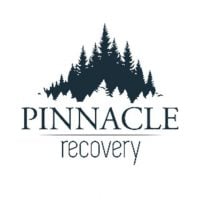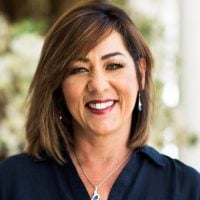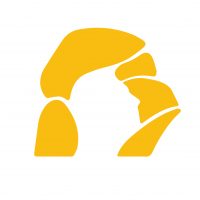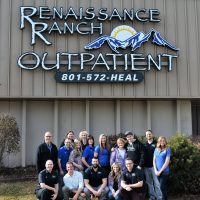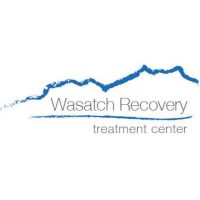
Wasatch Recovery
Drug Rehab Center in Salt Lake City, Utah
- Substance Abuse
- Opioid Addiction
- Dual Diagnosis
- Drug Addiction
Wasatch Recovery in Salt Lake City, Utah, is a comprehensive addiction treatment facility that offers a wide range of services, including detoxification, residential and outpatient care, evidence-based therapies, relapse prevention plans, and family counseling, all designed to address the challenges of addiction and promote a healthy lifestyle.
About This Salt Lake City, UT Facility
Wasatch Recovery is a comprehensive addiction treatment facility located in Salt Lake City, Utah. This center provides compassionate and confidential services to individuals struggling with opioid addiction, substance abuse, dual diagnosis, drug addiction, mental health, and alcoholism. Wasatch Recovery offers an extensive range of services including aftercare, residential, inpatient, and outpatient levels of care, all designed to help patients address the physical, mental, emotional, and spiritual challenges of addiction. They also provide a detoxification program to help eliminate the presence of drugs in the body and provide a safe transition to sobriety.
Wasatch Recovery provides a wide range of treatment and recovery services which are tailored to meet the individual needs of each patient. In addition to drug rehab and detox, they offer evidence-based therapies such as cognitive behavioral therapy, mindfulness-based cognitive therapy, and dialectical behavior therapy to help patients manage their emotions and behaviors. They also provide relapse prevention plans and family counseling services to reinforce healthy lifestyles and coping strategies. The facility is accredited by the Joint Commission on Accreditation of Healthcare Organizations (JCAHO). In addition, Wasatch Recovery accepts healthcare insurance plans to make their services more accessible.

Genders
Ages
Modality
Additional
Accreditations

JCAHO
Conditions and Issues Treated
Using both legal medications and illegal substances in order to maintain an addiction is substance abuse. Illegal substances can become addictive after a single use. If you are obtaining legal medications illegally, you may be suffering from substance abuse.
Fortunately facilities like Wasatch Recovery in Salt Lake City, UT are here to help.
Opioid addiction treatment facilities in Utah, like Wasatch Recovery cover both illegal and prescription opioids abuse. Most plans include detoxification and subsequent medications to ease the process. Behavioral therapies and counseling are also necessary to resolve the root cause of addiction.
A dual diagnosis is when someone deals with both alcohol and mental or emotional disorder. Emotional trauma, bipolar disorder, schizophrenia, depression can be part of dual diagnosis therapy. It must happen simultaneously to get care for these conditions to handle any of them effectively.
Levels of Care Offered
This center offers a variety of custom treatment tailored to individual recovery. Currently available are Aftercare Support, Detox, Drug Rehab, Dual-Diagnosis, Residential, with additional therapies available as listed below.
Detox is a drug rehab process that is designed to remove the drug addict from the drug safely. The problem with solely using detox as a sobriety tool is that it alone provides no therapy or counseling. If a person goes through detox and returns to their everyday life, they may begin using again once the detox has worn off.
Detox does not help with cravings, so for some addicts, this can be extremely difficult and should be both done and supervised by medical professionals. Aftercare is crucial, so selecting a facility that offers additional services is important.
Residential treatment programs are those that offer housing and meals in addition to substance abuse treatment. Rehab facilities that offer residential treatment allow patients to focus solely on recovery, in an environment totally separate from their lives. Some rehab centers specialize in short-term residential treatment (a few days to a week or two), while others solely provide treatment on a long-term basis (several weeks to months). Some offer both, and tailor treatment to the patient’s individual requirements.
Treatment is just the first step to maintaining sobriety. After treatment, aftercare support at Wasatch Recovery helps the individual adjust to a life without substances. This support may involve a sober living home in or near Salt Lake City, UT, career counseling, or educational assistance. This is when a relapse prevention plan begins to take shape.
Wasatch Recovery‘s Therapies & Programs
Spousal relationships bear the brunt of alcohol and drug dependence. It becomes critical to submit the relationship to couples therapy to prevent straining it further. Some facilities like Wasatch Recovery in Salt Lake City, UT offer couples therapy options to manage intimate partnerships amid the recovery process. Other couples-focused treatment plans can provide the patient and their partner tools to get things back to normal.
When family members are more proactive and involved in the treatment procedure, it encourages the patient to advance his or her progress. Moreover, it shouldn’t be ignored that genetics play a role when it comes to addiction, so it’s better to approach the problem as a unit. Also, with proper education, family members can help an individual avoid addiction triggers and guide him or her in making lifestyle changes necessary for his or her sobriety.
It has been said that unhealed trauma is the root of most addictions. Trauma therapy is a way of addressing trauma while in a safe situation in order to heal. Healing past traumas and introducing coping strategies are strong foundations for sustained recovery from addiction. This may involve individual or group counseling or both, in a Salt Lake City, UT facility. Other forms of therapy have been proven to assist in healing past traumas.
Dialectical Behavior Therapy (DBT) helps those who attend Wasatch Recovery understand how their feelings, beliefs, and thoughts affect their behaviors. DBT is particularly useful for people with self-harming behaviors, as well as those with substance abuse disorders. DBT teaches people how to tolerate distress, regulate their emotions, and how to become mindful.
Cognitive Behavioral Therapy (CBT) is a type of psychotherapy that focuses on the underlying thoughts and behaviors that caused the problem of addiction in the first place and may cause a relapse. Negative feelings are common in substance abuse disorders, and if not recognized, they can cause co-occurring disorders.
CBT involves strategies that help to change the thinking and behavioral pattern by cognitive restructuring. In simple terms, it helps to remove negative thoughts and provides long-term benefits. Also, CBT promotes self-awareness, self-control, and healthy ways to respond to negative thoughts. It can be administered as a mono-therapy as well as a part of combination therapy.
The 12-step program is a part of substance abuse treatment. In this program, peers help each other to achieve the goal of abstinence. It was initially developed by the founders of Alcoholics Anonymous. Due to its huge success, the 12-step program is included as a part of other substance abuse treatments.
The 12 steps guide at an individual level. It begins with the individuals accepting that they are addicts, and they understand its consequences. It is followed by focusing on the recovery process and making amends for hurting others. The program provides the benefit of cognitive restructuring, which refers to the process of change in the negative thoughts that leads to long-term benefits.
Payment Options Accepted
For specific insurance or payment methods please contact us.
Is your insurance accepted?
Ask an expert, call (888) 674-0062
Additional Details
Specifics, location, and helpful extra information.
Salt Lake City, Utah 84121 Phone Number(801) 901-0024 Meta DetailsUpdated November 25, 2023
Staff Verified
Patient Reviews
There are no reviews yet. Be the first one to write one.
Salt Lake City, Utah Addiction Information
More than 500 people in Utah die each year from the effects of drug abuse and/or addiction. Substance abuse rates in Utah have seen an upward trend for a variety of drugs. Opioids are involved in almost 70% of all drug-related deaths in the state, annually. In 2014, Utah officials created a Good Samaritan Law to protect drug users who report possible overdoses from being prosecuted themselves.
An estimated 9.1% of Salt Lake City, Utah, residents were current illicit drug users in 2014. In 2015, there were 120 drug overdose deaths in the area, which is a rate of 9.3 deaths per 100,000 persons. The most commonly abused drugs include methamphetamine, heroin, and prescription opioids. There are different rehabs in Salt Lake City to choose from, but it's important to find the one that is best for you.
Treatment in Nearby Cities
- Kanab, UT (248.7 mi.)
- Paradise, UT (67.2 mi.)
- Logan, UT (78.8 mi.)
- North Salt Lake, UT (18.2 mi.)
- Grand Junction, UT (201.4 mi.)
Centers near Wasatch Recovery

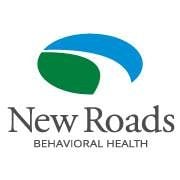
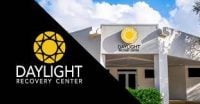
The facility name, logo and brand are the property and registered trademarks of Wasatch Recovery, and are being used for identification and informational purposes only. Use of these names, logos and brands shall not imply endorsement. RehabNow.org is not affiliated with or sponsored by Wasatch Recovery.


